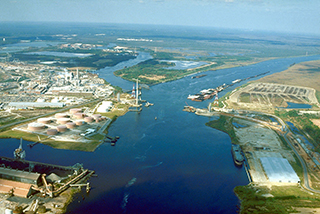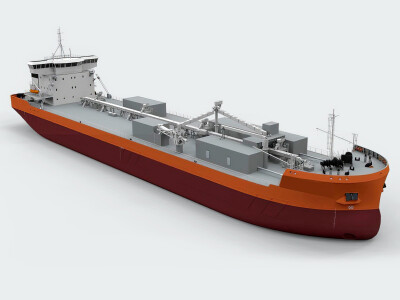President Obama has signed a five-year national highway freight reauthorization bill — the first in a decade — that contains important elements for the nation’s inland and seaports.
To the delight of the maritime community, which has often complained about being left out of national freight policies, the $305 billion measure recognizes ports as key participants in the nation’s multi-modal freight transportation network by including them in new funding initiatives.
“For the first time we have dedicated funding for multimodal freight projects. This is a big step forward,” Kurt Nagle, president and CEO of the American Association of Port Authorities (AAPA) said in a statement. “It shows that Congress and the Administration firmly recognize that seaports must be connected to America’s surface transportation network in order for the freight network to be efficient.”
The Fixing America’s Surface Transportation Act, dubbed FAST, authorizes spending $6.3 billion over five years for a new national freight program which provides dedicated formula funding to states for freight projects, including 1,400 miles of connections with ports and other intermodal facilities.
Funding will be available to both coastal and smaller inland ports for so-called “first and last mile” and connector projects that link ports to freight transportation networks such as roads, bridges and tunnels.
“Inland ports and terminals are in this mix, but we don’t know where the states’ money will go yet,” said Debra Colbert, a vice president at the Waterways Council, Inc, which advocates for federal funds for the inland waterway system.
Added AAPA’s Nagle, “Many of the connections with ports are in various states of disrepair and face further deterioration, particularly as trade volumes continue to grow.”
The bill also makes ports eligible for funds under the Congestion Mitigation and Air Quality Improvement Program. Projects could include money to finance port-related equipment and vehicles that have low pollution emissions, Nagle said.
Another part of the bill requires the government to keep better track of port congestion through a new port performance provision. It mandates collection and analysis of data from the nation’s top ports, rather than relying on anecdotal information as in the past.
Shippers who were hard hit by a labor dispute that caused cargo delays at 29 West Coast ports earlier this year pushed for the accountability, but AAPA said it was unnecessary. The negotiated final language leaves the specifics of a new performance measure unclear, such as whether congestion tracking should be done at times of unionized labor disputes, and puts the final details in the hands of a working group.





